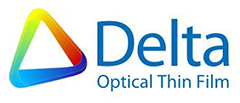
Google Updates Explained
Are you struggling with your Pandas, Penguins and Hummingbirds? We take a look at each of these Google algorithm updates and explain how each one will impact on your content strategy.
What is an Algorithm?
An algorithm is a set of calculations which allows information to be ranked or ordered. Search engines like Google, Bing and Yahoo rely on algorithms to manage vast amounts of information (data) and return the best results which match your query.
Google updates its algorithms 500-600 times a year. They’re evolving even as you read this.
The science behind Google started with groundbreaking research by co-founders Sergey Brin and Larry Page, then graduate students in the Computer Science Department at Stanford. Their initial findings were both simple and deceptively complex:
- SEO was a dirty word; the state of early search was shady—engines were suspected of selling top spots to advertisers.
- Rankings needed a clear, consistent “currency,” which Google discovered in links.
If you struggle with your Pandas, Penguins and Hummingbirds, or even if you are just looking for an overview, read on!
"The web gained 951 million users between 2000 and 2010"
For a while, getting strong Google rankings was simple. The larger the number of sites linking to you, the better your rank would be for the specific link text they used. Then, things started to get complicated: The Web gained 951 million users worldwide between 2000 and 2010.
Page Rank
Google’s ranking approach—called PageRank—made the process of scoring billions of websites orderly and consistent. However, it was still flawed as search engines and the human audience were not necessarily looking for the same results; it had to enhance its algorithms to make judgments about quality and user experience too.

"White Hat SEO focuses on the human user whereas Black Hat SEO uses unethical tactics to trick search engines"
That’s where modern day SEO practice comes in —white hat search engine optimization—is the iterative process which scores your expertise, vision, and knowledge against a remarkably complex, ever-adapting machine tended to by thousands of top engineers and computer scientists worldwide. The prize: Higher search rankings and greater visibility.
The secret to success: A data-driven, scientific approach based on best practices.
That starts with understanding where search has been and where it’s going soon.
The Google Menagerie: How Machines Think About Quality and What it Means to You
Most Google updates don’t impact every site on the Web, but their cumulative effect is dramatic: Businesses that don’t keep up will be left behind, even if they are the biggest brands on the block. At the same time, smaller firms committed to digital marketing can level the playing field.
Three major algorithm updates have set the tone for what good SEO looks like today:
 Panda: The Quality Control
Panda: The Quality Control
The purpose of Panda was to refocus search results on sites with trustworthy, comprehensive, user-focused content. Sites featuring sparse or poorly-written content overall were banished to Google’s back pages.
Write for users... not search engines
Millions of sites all around the Web were impacted by Panda. In one study, just 7% of Panda-hit sites fully recovered their search rankings later. The lesson here was clear: Sites need to have helpful, informative, and trustworthy content to compete on Google.
If you focus on creating quality, user focused content, the search engines will identify that using their increasingly intelligent algorithms.
Penguin: The Key Link
 Penguin, in one form or another, has been around for years, but it made a real splash in May of 2013. Penguin was the first sign Google wanted to improve the quality of content shown to its users: It severely penalized sites that had lots of links from low-quality sites.
Penguin, in one form or another, has been around for years, but it made a real splash in May of 2013. Penguin was the first sign Google wanted to improve the quality of content shown to its users: It severely penalized sites that had lots of links from low-quality sites.
One high quality backlink is infinitely more valuable than thousands of low quality links
Since Penguin, it is no longer possible to raise a site’s search ranking with a large quantity of poor links. Instead, reputable brands should seek authoritative sites within their own niche, focusing on a smaller quantity of links from thought leaders.
Hummingbird: The Conversationalist
 Unlike Panda and Penguin, Hummingbird isn’t an innovation focused on specific search marketing practices. Instead, it’s a complete rethink of the core algorithm. The goal was to radically improve the precision of matching user queries with relevant web pages. Many suspected that this was an iteration of latent semantic indexing (LSI), but this is untrue. LSI is a method of analysing co-occurrences of words that appear together, but it has a problem with synonyms and plurality of meaning. Also, LSI is a decades-old solution which ultimately proved impractical for the web.
Unlike Panda and Penguin, Hummingbird isn’t an innovation focused on specific search marketing practices. Instead, it’s a complete rethink of the core algorithm. The goal was to radically improve the precision of matching user queries with relevant web pages. Many suspected that this was an iteration of latent semantic indexing (LSI), but this is untrue. LSI is a method of analysing co-occurrences of words that appear together, but it has a problem with synonyms and plurality of meaning. Also, LSI is a decades-old solution which ultimately proved impractical for the web.
Hummingbird goes much further than LSI to dynamically interpret the context of word placement without needing to recalculate the entire dataset every time a new page is indexed. This means Google can now statistically predict which meaning of a word represents by analyzing the words that co-occur within content. E.g. If the word’s “City” or “United” were accompanied in a content piece by the word “Manchester”, it would be statistically probably that the word’s “City” or “United” throughout the remaining content are referencing a football team. And, unlike with LSI, it can do this ad-hoc.
By understanding how words occur together, a computer is better able to answer a query by correctly associating the right keywords to the search query.
In addition to conversational context, the Mobile user experience is also a driver behind the Hummingbird update when mobile compatibility became a key ranking factor in 2015.
Nowadays, Google, SEO and Content Creation go hand in hand. We can advise you on the best ways to create well-optimized content written for a specific end-user and stay on the right side of the furry animals - contact us for your free SEO review.
Schedule your SEO Review
Related Testimonials
-

Organic traffic has increased 46.34% since working with the SEO team, but most importantly, both the quality and the quantity has improved considerably, resulting not only in more sales, but bigger sales too!
Jo Talbot Tecman Specialty Materials
-

We have seen an increase in both web generated enquiries and telephone traffic on products that are targeted. Lead/Enquiry generation is now starting to overtake us, which is a great problem to have!
Andy Adams Masteel
-

Over the past 6 months our organic traffic has increased 17.51% compared to the same period last year and the number of contact form submissions we’ve seen has risen from 0 in that period to 23
Oliver Pust Delta Optical Thin Film